By Jean-Pierre Klotz – member of the NLS
The NLS is one of the nicest « shops » of the WAP, is the widespread opinion among those frequenting it, since its beginnings. A matter of atmosphere, of fluidity in the diversity which does not exclude the disparate, but where the action of those who make it exist, work, produce and transmit, within it, in the WAP and outside it, contribute to the draining of local difficulties arising here and there, themselves very heterogeneous. It is especially able to resonate with this beginning of the 21st century, where civilization expresses itself more Freudian than ever in its discontent, and more Lacanian in its symptom, which names it as it orientates more and more clearly our work.
When it is the sinthome extracted from the later Lacan that comes on the agenda, under the avatar « Reading a Symptom », and it happens moreover with the NLS congressing in Israel, then we are – we have been, there, these days that just passed – filled with a sharpness, a fluid vivacity, appearances that remain. They brush against each other more than they claim to. Around the One which enjoys and the Multiples which do not cease to (re)produce themselves, an effect of conjuncture resonates with the current preoccupations and works where psychoanalysis is renewed in its modes of presentation. It seems to me that the NLS is starting to bring an original contribution to it, because of its unsynthesizable diversity. Claudia Iddan started with Otto Weininger, this sinthome which does not exhaust itself in understanding, and Eric Laurent concluded towards Athens 2013 with the psychotic subject of vital importance for this topicality of the sinthome.
The One there is, does not go without the Real, without erasing multiple passages. Thank you to Tel-Aviv and its event.
The afternoon of the AE,
By Jean-Luc Monnier
The clarity and the elegance of the testimonies of the AE in Tel-Aviv led us towards the essential point of each of the analyses, which only this tremendous effort of transmission, associated with the precision of Eric Laurent’s comments – truly pushing the AE to go beyond their own testimonies – could make us apprehend.
How to speak of the One of jouissance at the end of analysis? How to account for the use of the symptom?
Leonardo Gorostiza made us hear a first moment of discontinuity where the symptom could be used in reverse: that is to say, playing on two meanings of this signifier, when the « shoehorn », the integrator, becomes separator, and thus instrument of the desire of the analyst. A second moment of discontinuity is necessary to conclude: there where time and space vanish, results the disappearance of the representation of the subject, to make emerge from contingency, a letter, the letter L: new name of symptom.
Paola Bolgiani shows that where the analyst kept his place of subject supposed to know, occurs in the contingency of the act, the non-dialectisable and anguishing object, whose real presence pierces the Other. The drive is stripped to knot itself differently to the signifier and make appear the partner that loomed on the horizon: death.
Equivocation was what caused the trauma for Sonia Chiriaco, and it is precisely by exhausting all meanings of this equivocation that the traumatic mark of language [la langue] was remembered against the background of death. From there she could make another use of the trauma and thus subvert destiny. As Eric Laurent commented: knowing how to do with the symptom is not simply « meaning is use » in its generality, the subject having then gone through all the significations. The « meaning is use » should be referred to the possible uses of the trauma by a subject, to a particular use of language [la langue]. We could conclude that it is rather about making use of the traumatic mark outside-meaning.

Agenda
• 17 May 2013: Members’ Conversation in Athens / Conversation des membres à Athènes
• 18 and 19 May 2013: Congress in Athens / Congrès de la NLS à Athènes
• 6 and 7 July 2013: Pipol VI in Brussels / PIPOL VI : congrès de l’EFP à Bruxelles
• 2014: WAP Congress / Congrès de l’AMP






